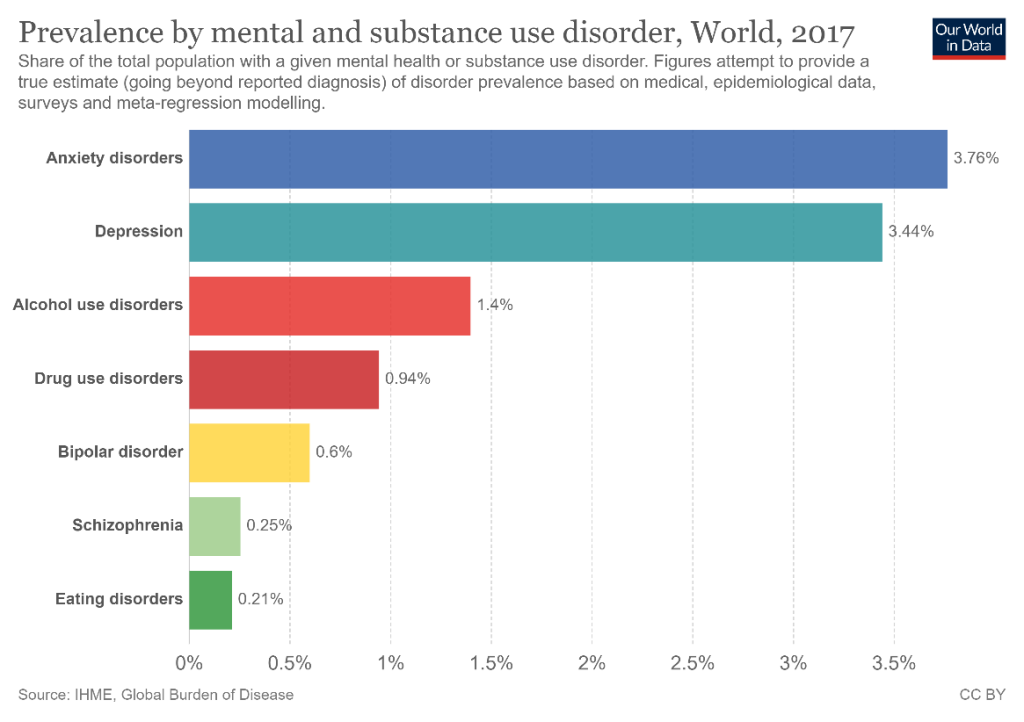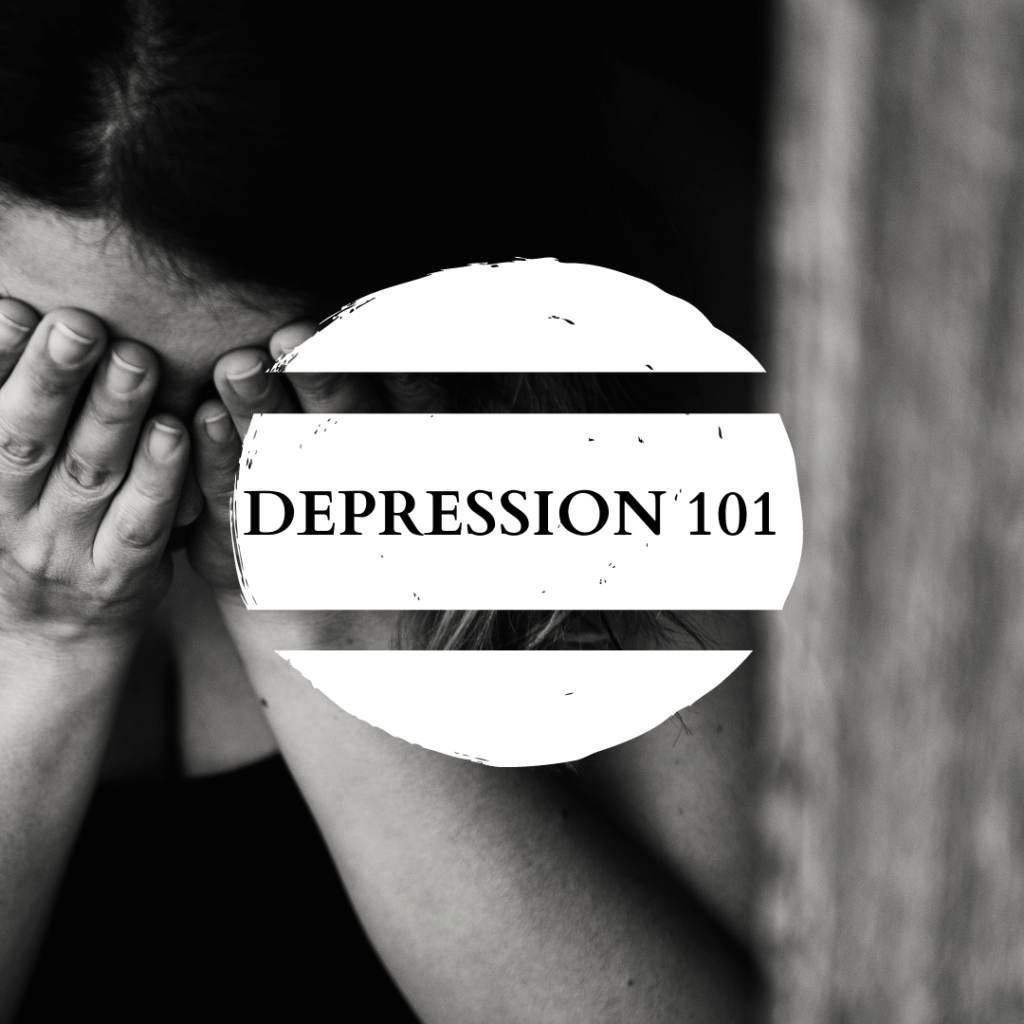Decoding the science behind depression.
I argued with my friend, didn’t do well in my exams, disappointed my teacher by not paying attention to the practical, lost my wallet, got scolded by my dad for being irresponsible and shouted at my roommates (obviously, I was irritated and stressed). Arghh… what a crappy day! I skipped my meal, couldn’t sleep properly and I even cried. After a day or two, I was all okay! One cannot say that I was depressed, because depression is something that still isn’t completely understood and so, is to be decoded. It does involve a lot of acrobatics inside the skull.
Depression is an illness altering the way a person perceives the world and interprets situations. It is affecting millions of people worldwide belonging to all age groups and is one of the major causes of suicide.
The symptoms range from mild to severe and vary between people. Sadness, loss of energy, changes in appetite, lack of concentration, and feeling of worthlessness are some of the manifestations of depression. Symptoms that last for at least 2 weeks can be considered an onset of the disorder. It’s important to emphasise that grief is not synonymous to depression. Grief does not include feelings of self-loathing and is shorter in duration.

Sneak –peek into Vigyan.
Brain Imaging Techniques and Animal Models have been used to propose hypotheses, especially about Major Depressive Disorder (MDD), which is one of the serious forms of Depression. MDD includes many complex mechanisms which I have tried to comprehend and elucidate in the simplest way possible. These studies still need further investigation as some aspects are still unclear. Also, it is quite difficult to say whether these are causes or symptoms of Depression.
The Monoamine Hypothesis talks about the reduced levels of monoamine neurotransmitters viz. Serotonin, Norepinephrine, and Dopamine.Neurotransmitters are basically chemicals, transferring signals between neurons. Serotonin, “the happy chemical”, helps us stabilize our mood and gives a sense of well-being as well as it also helps in sleeping and maintaining good eating habits. On the other hand, Norepinephrine helps in vigilance and memory retrieval. Finally, Dopamine is responsible for motivation and a rewarding behaviour, which consequently leads to a sense of pleasure. A decline in their concentration leads to noticeable symptoms of depression, like sadness, disturbed sleep cycle, changes in appetite and so on. Many antidepressants have been developed to elevate their levels. But here is the problem: These drugs take time to bring about a significant change instead of reacting rapidly. This demands for a more detailed insight into the biology.
Next comes the Hypothalamus-Pituitary-Adrenal (HPA) Pathway. This passage is involved in stress response and can be activated directly by the hypothalamus and indirectly by the amygdala (organ associated with fear and stress). It leads to secretion of cortisol from the adrenal gland, which is the primary stress hormone. It targets the hippocampus and pituitary gland, which control the HPA pathway. However, if the body is experiencing prolonged stress, things can get out of hand. The cortisol can increase to a level that it becomes uncontrollable. Studies have shown the elevated levels of cortisol in people with depression, which can exaggerate their response to stress. Cortisol increment may also lead to reduction in the size of hippocampus and so people suffering from depression show a reduced hippocampus, which can affect their memory.
Neurotrophic Factors are the caretakers of the brain, nurturing the developing and mature neurons for their growth and differentiation. The Neurotrophic Hypothesis brings BDNF into the limelight, which is an acronym for Brain-Derived Neurotrophic Factor– a protein having the aforementioned role. The hypothesis states that impairment of these factors can lead to deterioration of hippocampus during depression. As the volume of hippocampus gets reduced, i.e. its neurons damaged, it needs a helping hand to repair itself, which is the role of BDNF. Alas, it is in trouble though! People with depression are found to have low levels of BDNF and at the same time, antidepressants work slowly, probably because they help in elevating levels of BDNF in the body, which can later function again as the mechanic, leading to improved condition.
Other organs, such as the hypothalamus, nucleus accumbens, and amygdala which play important roles in our hunger, motivation, energy, sleep cycle, and alertness are also known to be affected by depression and lead to display of various related symptoms. The Brain Reward circuit, which gives a sense of pleasure and is also related to drug abuse problem, is found to be altered by depressive disorder. Further investigation is still requird for a clear picture of the case.
Well finally, how can we forget the master of every being’s existence? Yes, Genetics! A person with a history of depressive disorders in family can be diagnosed with it. However, no, it is not as simple as it sounds. Depression doesn’t include one, but a combination of genes and their individual effect may be really tiny to be detected. Genetic-Wide Association Studies (GWAS) have led to a breakthrough in this field and opened avenues for further research. GWAS probes into the genetic variation frequency in our genome, specifically, Single Nucleotide Polymorphisms (SNPs), which make us who we are: unique. The 5HTTLPR polymorphism in the Serotonin Transporter Gene is known to be associated with the onset of Depressive disorder. However, some research suggests that the Gene and Depression are unrelated and so is a matter of debate and calls for investigation. GWAS can assist in understanding depression in a better way and in developing better medication and therapy.
Various Environmental Factors can also lead to Depression. It can be Family issues, the work environment, childhood trauma or assault. But yes, they cannot guarantee depression, its probability. Not everyone experiencing stress can become depressed.
What can be done?
Currently, antidepressants (E.g.: Iproniazid, Imipramine, Selective Serotonin Reuptake Inhibitors or SSRIs), psychotherapy (talk therapy) and Electroconvulsive therapy (ECT) are used as a form of treatment.
Antidepressants can be paired up with psychotherapy for severe cases. If that fails, ECT can be employed, which involves electrical stimulation of the brain while the person is under anaesthesia.
We all hold the responsibility to empathize with people suffering from depression and to try to assist them. We may not know who is suffering, as many do not talk about what they are going through, but being sensitive to everyone’s emotions won’t worsen the situation. A support from us to the ones having a tough time can make them feel better. Together with Science we can be their Sunshine!
Since 1992, October 10 is observed as World Mental Health Day, with the goal of spreading awareness regarding mental disorders and for tackling myths revolving around them. This provides a platform to discuss the psychological issues faced by people worldwide and the stakeholders to showcase their work and what all can be done in the future. According to WHO, the agenda adopted this year is to escalate investment in mental health, while taking the effect of the pandemic on psychology and other past experiences into consideration. This scenario calls for attention and healthy discussion to manage the crisis in the best possible way, because no one should have to suffer inquietude.
Author:

Sreelakshmi S Kumar
Sreelakshmi is pursuing her undergraduate course degree in Zoology from Fergusson College, Pune. The field of Immunology and Virology interests her the most. She harbours her love for science and teaching inside her, and she wishes to teach in the future. Dancing, reading and calligraphy are some of her leisure activities and she is a big foodie too!

